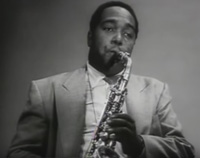
Lester Willis Young (August 27, 1909 – March 15, 1959)
Lester Willis Young (born August 27, 1909, Woodville, Mississippi, U.S. – died March 15, 1959, New York, U.S.), better known as ‘Pres’ or ‘Prez’, nicknamed by Billie Holiday. American jazz tenor saxophonist who emerged in the mid-1930s Kansas City, Missouri, jazz world with the Count Basie band and introduced an approach to improvisation that provided much of the basis for modern jazz solo conception.
Contents
BIOGRAPHY
Background
Lester Willis Young was born in the small town of Woodville, Mississippi, near New Orleans, on August 27, 1909, to Lizetta Young (née Johnson), and Willis Handy Young, originally from Louisiana. Lester had two siblings – a brother, Leonidas Raymond, known as Lee Young, who became a drummer, and a sister, Irma Cornelia. His parents, both professional musicians, taught their children to play a variety of instruments and formed a family band that played carnivals, circuses, and minstrel shows.
Early life and career
While born in Mississippi, Lester Young spent most of his early childhood in the rich musical environment of New Orleans. Lester studied violin and trumpet. By age 11, he was playing drums for a family band, the Billy Young Jazz Band, which also included his siblings, his stepmother and two cousins, but later convinced his father to let him take up the alto saxophone. Some of Lester’s early influences included Frankie Trumbauer and Bud Freeman.
Young had a long history of disagreements with his father, and this caused him to leave the band when he was 19. Because he refused to tour in the South, Young left home in 1927 and instead toured with Art Bronson’s Bostonians, switching to tenor. He was back with the family band in 1929 and then freelanced for a few years, playing with Walter Page’s Blue Devils (1930), Eddie Barefield in 1931, back with the Blue Devils during 1932-1933, and Bennie Moten and King Oliver (both 1933) and other bands, before joining the Count Basie-Buster Smith band at the Reno Club in 1934.
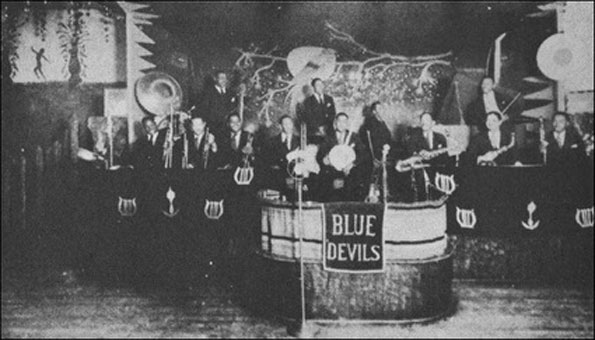
The Original Blue Devils
Collaboration with Count Basie
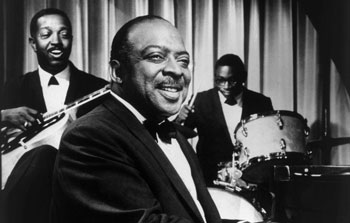
William James “Count” Basie (August 21, 1904 – April 26, 1984), a famous American jazz pianist, organist and composer.
By 1936 he played in Count Basie’s Kansas City band and became one of the leading tenor saxophonists of the swing era. Basie’s orchestra moved to New York City and Young performed and recorded not only with Basie, but also with most of the leading jazz musicians for three decades. Known mainly for his velocity and swinging style with Basie, in 1937 he recorded several ballads with singer Billie Holiday and pianist Teddy Wilson.
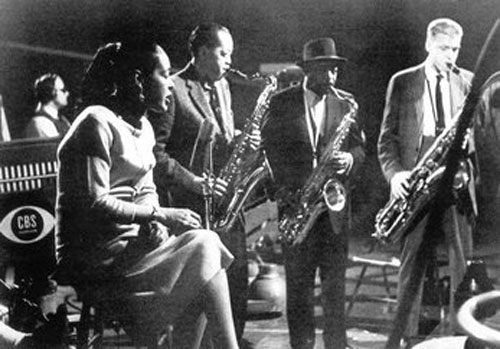
Lester Willis Young with Billie Holiday, Coleman Hawkins and Gerry Mulligan
After leaving the Basie Orchestra in 1941, he spent the next several years playing in New York and Los Angeles.
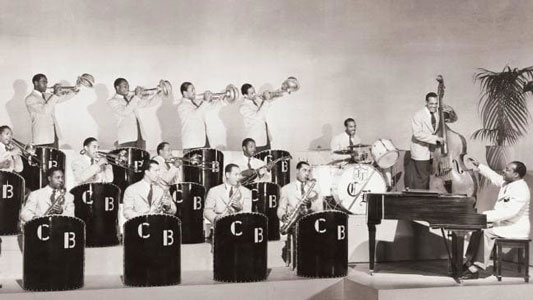
The Count Basie Orchestra around the 1930s-40s
Army service
By the time World War II started, Young was a jazz star. So he expected his military service to be spent entertaining the troops, like the white musicians in the bands of Glenn Miller and Artie Shaw. But the government drafted Young into the regular army where he was not allowed to play his saxophone. Young was court-martialed for using marijuana. His army experience was traumatic, and it inspired his composition D.B. Blues, for "detention barracks."
Late career struggles
Although many critics have written that Lester Young never sounded as good after getting out of the military, despite erratic health he actually was at his prime in the mid- to late-'40s. He toured (and was well paid by Norman Granz) with Jazz at the Philharmonic on and off through the '40s and '50s, made a wonderful series of recordings for Aladdin, and worked steadily as a single. Young also adopted his style well to bebop (which he had helped pave the way for in the 1930s). But mentally he was suffering, building a wall between himself and the outside world, and inventing his own colorful vocabulary.
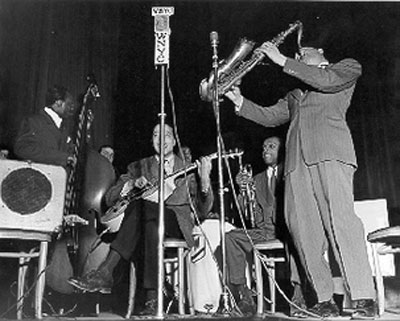
Lester Young Band
Throughout his life, Young struggled with racism, from the Jim Crow laws his family faced in the 1920s to the way he felt the army treated him. Young drank heavily for the rest of his life. In the late 1950’s, Lester began to have health problems. While he was on tour, he continued to record and make concert and festival appearances and was featured on television’s The Sound of Jazz in 1957. In these final years his health was slowly deteriorating; and his band broke up. Lester went on tour with Miles Davis, but was very disheartened to receive bad ratings.
Final years
Young had taken to drinking excessively and wasn’t eating well. It is likely that the disrespect he was beginning to receive led him to drink even more. Young had other complications including an untreated case of syphilis. He was admitted to a hospital in 1957 and was treated for malnutrition, alcoholism, and cirrhosis of the liver. The doctors told Young he didn’t have much longer to live. He returned home in 1958 and was actually able to tour again briefly. Lester Young passed away on March 15, 1959.
SHEET MUSIC
You can find and download free scores of the composer:
0 Comments